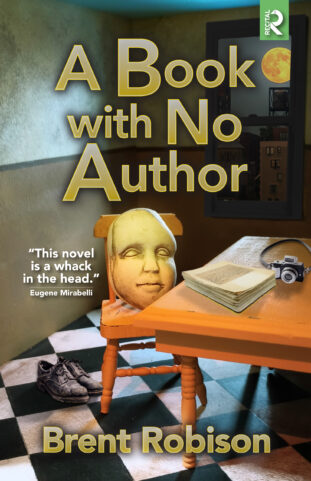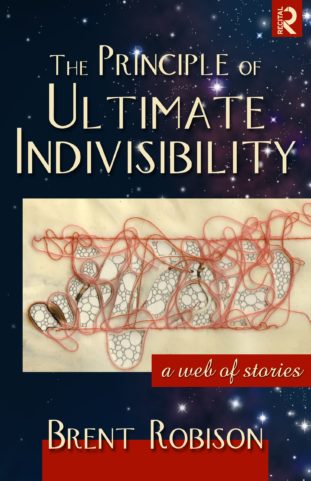From the publisher’s website:
...Gaylin’s And She Was introduces a remarkable new protagonist: Brenna Spector, a missing persons investigator afflicted with Hyperthymestic Syndrome, a rare disorder that enables her to remember every moment of every day of her life. A twisting mystery, both chilling and surprising, And She Was sets the haunted investigator on the trail of a missing child who vanished more than a decade earlier—a case with disturbing echoes in Brenna’s own scrupulously remembered past.No question, And She Was lives up to its advertising. As each chapter ended, I found myself having difficulty closing the book. I stayed up too late several nights. Alison has a truly enviable knack for the cliffhanger that keeps the reader hooked as tension mounts, and she handles the intricate plot with finesse, like the consummate professional she is. The truths that were finally revealed in the climactic scene genuinely surprised me. And the sugar on top is her smart and funny narrative voice (not to mention the title nod to one of my favorite Talking Heads songs). This is a novel that will most certainly please fans of the suspense genre.
So... now is when this review jumps the tracks and I show my weirdness. I confess I’m like the oddball reader who, out of 52 reviews on Amazon, was the only one who said “Really liked the main character, but didn't care about the mystery.” In other words, Brenna’s struggles with her inner life and her relationships are far more compelling to me than any crime and detection plot could be. This is about my personal tastes, not Alison’s skill. Hyperthymestic Syndrome... wow, that is really fascinating to me, and not in a textbook way, but in a human way.
Aah, memory... so bittersweet, such a friend but so unreliable. It’s one of the ultimate mysteries, and brain science just doesn’t have the answers. What exactly is this strange thing that each of us lugs around as it gets bigger every day? Thank heaven we have an automatic mechanism that lightens the load: we forget. Or most of us do. The few people with genuine Hyperthymesia (now called HSAM, or Highly Superior Autobiographical Memory) forget very little. Imagine---no foggy blanks, no sensory loss, no dulled emotions in recalled events. Almost nothing, including pain and joy, is missing from the vast catalog of moments they’ve lived since their condition became active. The first person to be diagnosed with hyperthymesia, Jill Price, says “It makes me crazy.” Indeed. How could it not?
Brenna Spector is both blessed and cursed by this gift of super-memory. She uses it like a video recording to “see” crucial crime-solving information from the past, but she also suffers as she re-lives painful personal events. These were my favorite scenes in the book, and their success is largely due to the fact that Brenna is a fully-developed, three-dimensional character as well as a likeable protagonist. Her inner conflict with a freakish memory is rich ground from which to draw a story, and I congratulate Alison for having a great idea and jumping right into it (by the way, readers roundly commend her book as superior to the TV show Unforgettable, which I’ve never seen but which depicts a character with the same condition).
So for me, the hook was the mystery of memory. I want to ask for more... not more facts, but more questions, more dilemmas, more exploration of Brenna’s inner world. “Whodunit” be damned. Granted, that is not what thriller readers want, so my request is plainly unreasonable. In any case, I plan to read the next novel in Alison’s Brenna Spector series, and I fantasize joining Brenna in facing questions like the ones in these next few paragraphs:
Memories within memories within memories.... Imagine a scenario in which a person with Hyperthymestic Syndrome or HSAM is remembering in great detail an occasion in the past, during which she was also remembering in great detail another occasion in the deeper past... and so on. How would one experience such an infinite regression? What if an experience like that dramatically interfered with Brenna’s ability to function in an important moment of conflict?
Evidence shows that people with HSAM have not only more recall, but more accurate recall than the rest of us. Nevertheless, a human is not a machine. What is remembered can be no more accurate than what is originally perceived, and all perception is open to interpretation in the moment. What would happen if another person’s memory, or better yet, video or photographic evidence disputed a “fact” that Brenna’s memory told her was absolutely true? What would this mean to a romantic relationship if both parties remember an important event differently, but one has a supposedly valid reason to believe she is always right? Would discovering the untruth of a memory that was key to one’s self-concept, one’s “story,” shatter the foundation of the self?
A related question regards the malleability of memory... the “misinformation effect.” Memory can change over time and with new input. For example, most of us aren’t entirely sure whether we remember actual events or the photographs or stories of those events that we’ve looked at or heard in the years since. Given the assumption that a person with HSAM is less vulnerable to this effect than the rest of us, what if a concentrated effort was made by an evil-doer to distort Brenna’s memory (“retroactive interference”)? In other words, what if she has to face the fact that her famously perfect memory could actually betray her?
I’m veering too much toward suggesting plot points now, but forgive me one more. What if evidence based on Brenna’s memory was challenged in court and, despite its truth, a skillful expert witness shot her testimony down? Someone like Dr. Elizabeth Loftus, who has changed the course of many trials by showing empirical proof of the fallibility of memory. Read more about eyewitness memory as well as the “homunculus fallacy” from Marc Green PhD here.
Perhaps the most esoteric, and possibly for me the most compelling, of the questions about memory is: where is it stored? “The brain” is an an entirely unsatisfactory answer. Experiencing a memory is no different in the brain from experiencing actuality: for every sensation or perception, a little storm of electro-chemical activity is all there is. We have no way to prove that objective reality actually exists.
Experiments have shown that memory is not located in a particular part of the brain, but rather in the brain as a whole. It’s like a hologram: slice it up, and the entire picture is still found in every fragment. Respected neuroscientist Rudolph Tanzi points out in a set of videos with Deepak Chopra that the brain in fact does not have storage capacity, but rather appears to act as a type of retrieval tool, bringing memories from the "past" just as it brings imagination from the "future" into our present consciousness... from “somewhere else.”
Rupert Sheldrake, the controversial doctor of biology at Cambridge, has long posited that memory does not reside in any particular region inside the skull but instead in a kind of energy field surrounding and permeating the brain, what he calls a “morphic field.” The brain is the decoder, making sense of the inflow of data produced by the interaction of each person with their environment. Memory is “nonlocal.”
Sheldrake’s ideas connect with Carl Jung’s theory of the Collective Unconscious, as well as with the Akashic Records, the ancient Vedic concept of a "library" containing all the experiences and memories of human minds for all time, encoded invisibly somewhere our science has not yet accessed.
In addition, memory study rubs shoulders with the work of other cutting-edge scientists: Holonomic Brain Theory by physicist David Bohm and neurologist Karl Pribram (read The Holographic Universe by Michael Talbot), and more recently Quantum Consciousness (Orch-OR) Theory by physicist Sir Roger Penrose and anesthesiologist Stuart Hameroff. Also, Biocentrism by Robert Lanza (the book co-authored by our Woodstock neighbor, astronomer Bob Berman). These explorations assert the primacy of Consciousness rather than Matter. They delve into areas easily labeled “philosophical” and even “spiritual,” which in my opinion is where the best science should always be going: into the Mystery.
The questions don’t stop. This thing called “I”---is it just the sum of my memories, or something more? Could memory be just a device created by the ego to give the illusion of continuity so we aren’t overwhelmed with existential panic every morning when we are reborn into existence? What about the borderline between dreams and memories---if one becomes the other, how can I tell truth from fiction? If my memory is stored in an energy field around me, and my field mingles with that of someone close to me, couldn’t we share memories? In cases of past life regression, is it actually the subject’s own memories being recalled, or something received like a radio signal from the nonlocal, non-temporal morphic fields or akashic records? And so on....
Well, clearly I’ve gone far off the track of a typical book review here. But that’s how my mind works. What does it all have to do with And She Was? Alison Gaylin’s creation Brenna Spector is set to be the heroine of at least two more novels. Fiction is the arena in which emotion delivers ideas, stamping them into us like an embossing tool on leather. Brenna’s affliction challenges our thinking, exaggerating universal human struggles just enough to act as a mirror in which we see ourselves more clearly. She is the fictional counterpart of those real individuals whose unusual minds lead us to new wisdom. May her stories go deep, last long, and be wildly popular!
(Alison, if you’re still with me at this point, thanks so much for the wellspring of exciting questions and ideas!)





